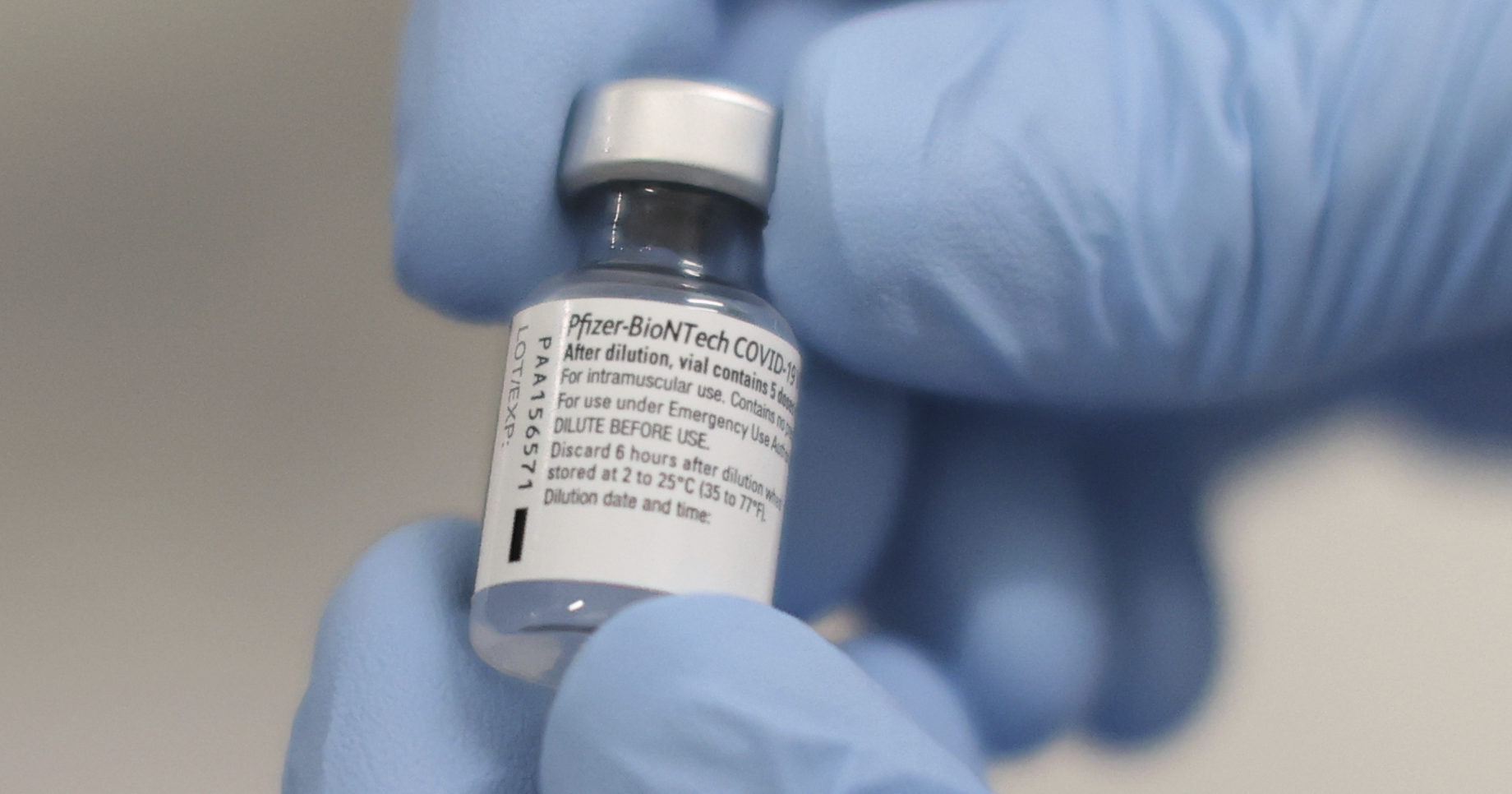
Pfizer's COVID-19 Vaccine Faces Final Stage of Scrutiny Before FDA Decision
A U.S. government advisory panel convened on Thursday to decide whether to endorse mass use of Pfizer’s COVID-19 vaccine.
The meeting of outside advisers to the Food and Drug Administration represented the next-to-last hurdle before the expected start of the biggest vaccination campaign in U.S. history.
Depending on how quickly the FDA signs off on the panel’s recommendation, shots could begin within days.
During the scheduled daylong session, the panel was expected to publicly debate and pick apart the data on whether the vaccine is safe and effective enough to be cleared for emergency use.
With unprecedented interest in the normally obscure panel, the FDA broadcast the meeting via YouTube.
“The American public demands and deserves a rigorous, comprehensive and independent review of the data,” FDA’s Dr. Doran Fink said.
The FDA is not required to follow the committee’s advice but is widely expected to do so. Once that happens, the U.S. will begin shipping millions of doses of the vaccine.
Later this month, the FDA is expected to pass judgment on another vaccine candidate, developed by Moderna and the National Institutes of Health, that has proved about as protective as Pfizer’s shot.
A third candidate, by AstraZeneca and Oxford University, is also making its way down the pipeline.
The initial supplies from Pfizer and Moderna will be limited and reserved primarily for health care workers and nursing home patients, with other vulnerable groups next in line until the shots become widely available on demand, something that will probably not happen until the spring.
Hanging over the meeting is a warning from British officials that people with a history of serious allergic reactions shouldn’t get the vaccine. U.K. government authorities are investigating two reports of reactions that occurred on Tuesday when Britain became the first country in the West to begin mass vaccinations.
Still, a positive recommendation and speedy U.S. approval appeared nearly certain after FDA scientists issued an overwhelmingly positive initial review of the vaccine earlier this week.
FDA said results from Pfizer’s large, ongoing study showed that the shot, which was developed with Germany’s BioNTech, was more than 90 percent effective across people of different ages, races and underlying health conditions, including diabetes and obesity.
No major safety problems were uncovered. Common side effects included fever, fatigue and pain at the injection site.
“The data presented in the briefing report were consistent with what we heard before and are really exciting,” Dr. William Moss, head of Johns Hopkins University’s International Vaccine Access Center, said. “Nothing that I see would delay an emergency use authorization.”
The meeting also represented an opportunity for regulators to try to boost public confidence in the breakneck development process that has produced the Pfizer vaccine and a string of other upcoming shots with remarkable speed.
FDA commissioner Stephen Hahn said the agency had streamlined the process to authorize the vaccine by filling out all the legal paperwork in advance, regardless of the ultimate decision.
On Thursday’s agenda:
RARE ADVERSE REACTIONS
The FDA uncovered no major safety problems in its review of Pfizer’s 44,000-person study, including no allergic reactions of the type reported in Britain. But such studies can’t detect rare problems that might only affect a tiny slice of the general population.
FDA reviewers noted four cases of Bell’s palsy that occurred among people getting the vaccine.
They concluded the cases were probably unrelated to the vaccine because they occurred at rates that would be expected without any medical intervention. But the agency did say cases of the nerve disorder should be tracked, given that other vaccines can cause the problem.
“I think we have to be upfront, without scaring people, that we don’t know yet about any potential, rare, long-term adverse events,” Moss said.
EFFICACY QUESTIONS
The FDA found the vaccine highly effective across various demographic groups. But it is unclear how well the vaccine works in people with HIV and other immune system disorders.
The study excluded pregnant women, but experts were expected to tease apart the data in case women get vaccinated before realizing they’re pregnant.
A study of children as young as 12 is underway.
IMPACT OF EMERGENCY AUTHORIZATION
Answering some of these questions will require Pfizer’s study to continue for many more months.
When the FDA panel met in October, experts warned against allowing study participants who received dummy shots to get the real vaccine as soon as it receives the FDA’s emergency green light. Doing so could make it impossible to get answers to certain questions, such as how long the protection lasts.
Pfizer and BioNTech say they want to allow such participants to get the vaccine on request or, at the latest, after six months of follow-up. The FDA hasn’t made clear if it will accept that approach.
“FDA is adamant that they want these trials completed,” Norman Baylor, former director of FDA’s vaccine office, said.
The Western Journal has reviewed this Associated Press story and may have altered it prior to publication to ensure that it meets our editorial standards.
Truth and Accuracy
We are committed to truth and accuracy in all of our journalism. Read our editorial standards.
Advertise with The Western Journal and reach millions of highly engaged readers, while supporting our work. Advertise Today.












